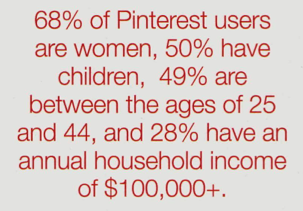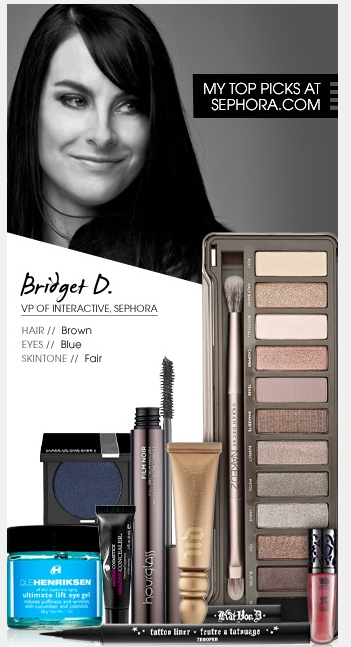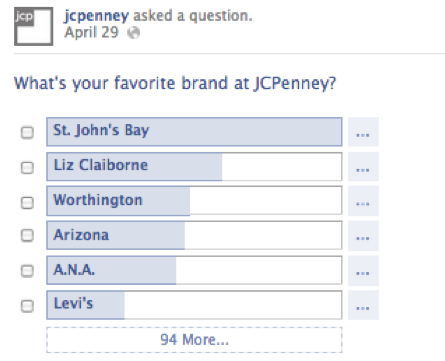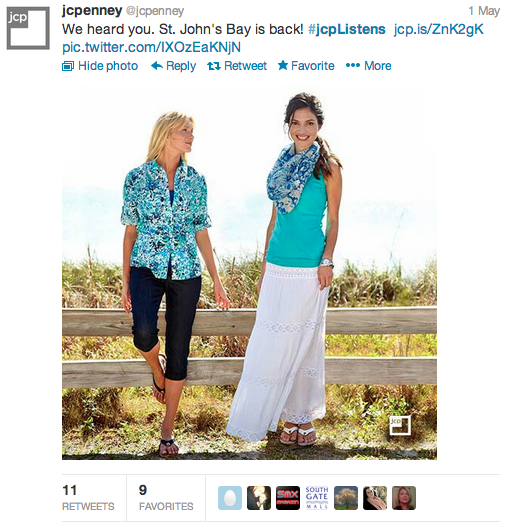Lowe’s, the home improvement retailer, has been gaining a lot of attention for its effective use of social media. With impressive pages on Facebook, Twitter, Pinterest, and now Vine, their competitors are having a hard time keeping up.
Lowes’ key factor to success is that they have moved away from a product-promotion strategy on social media. The retailer uses social media as a medium to help and inspire customers in a way that will also encourage them to buy Lowe’s products. For example, Lowe’s uses its Pinterest boards to help inspire DIYers. Instead of simply pinning its products, many of the brand’s pins are of ideas. They pin design or project ideas that may have a Lowe’s product in the picture, or that can be made with the help of a Lowe’s product. This picture of a kitchen was pinned to the retailer’s A Kitchen To Dine For board. This kitchen is obviously not for sale by Lowe’s. It was actually published in Better Homes and Gardens magazine, however, Lowe’s uses this image to attract customers to their products by tagging the photo: “Love blue? Browse these examples of beautiful blue kitchens to get some creative ideas for incorporating this usually calming, but sometimes invigorating, color into your kitchen.”
A Kitchen To Dine For board. This kitchen is obviously not for sale by Lowe’s. It was actually published in Better Homes and Gardens magazine, however, Lowe’s uses this image to attract customers to their products by tagging the photo: “Love blue? Browse these examples of beautiful blue kitchens to get some creative ideas for incorporating this usually calming, but sometimes invigorating, color into your kitchen.”
The benefit to posts like this one is that products are not being blatantly advertised to customers. When users go on Pinterest they are often seeking inspiration and ideas, not advertisements. The inspiring framework of the brand’s pins appeal to customers in a way that lets the customer choose the products advertised to him or her. It gives the entire process a more natural feel, and helps personalize the message behind the pin.
Lowe’s is also doing a great job of integrating its customers in the action. In addition to posting their own content, Lowe’s often re-pins the content of some of its followers. This helps show followers that the brand is just as interested in what they have to say as they are in selling their products.
In addition to Pinterest, Lowe’s has been doing great things on Twitter and Vine as well. Last Spring, Lowe’s launched its Fix In Six video campaign. The campaign was built around Vine, the online site that allows users to create and share 6 second long videos. The Fix In Six campaign featured vines with clever tips and tricks for at home projects. The brand extended the campaign to twitter as well. Lowe’s allowed customers to tweet their questions to the brand using the hashtag #lowesfixinsix, to get a video response answering their question. Lowe’s also initiated customer interaction with event specific hashtags like, #timetospring, which was created as a source for followers to ask the company questions about getting their yard ready for spring.
Lowe’s is also keeping customers inspired and involved with their mobile app, Creative Ideas, and with MyLowes, an online feature that allows customers to keep track of their projects and purchases, as well as receive tips and reminders for upcoming projects and seasons.
They key to Lowes’ success with social media is that their focus isn’t just on selling products, but on engaging its customers. Lowe’s provides manny channels for customers to seek help and inspiration for their projects so that they want to buy the necessary tools and equipment from Lowe’s. The brand has found the right balance between self-promotion, and customer initiated promotion and it has definitely paid off.



